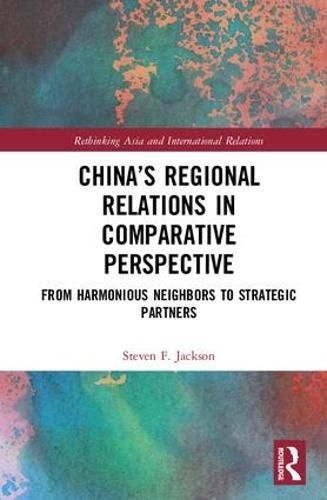Readings Newsletter
Become a Readings Member to make your shopping experience even easier.
Sign in or sign up for free!
You’re not far away from qualifying for FREE standard shipping within Australia
You’ve qualified for FREE standard shipping within Australia
The cart is loading…






China’s relations with its neighbors have evolved since 1949, and in the 21st century many scholars argue that China’s rising power has led it to be increasingly domineering over those smaller countries in Northeast, Southeast, Central, and South Asia. The evolution of China’s regional relations needs to be examined comprehensively, since China counts twenty-seven countries as its neighbors large and small. While China’s official policy toward all of these countries is to treat them as good neighbors and partners, some of these relationships have been spectacularly deteriorating, while others have been quietly improving over the last two decades.
Jackson takes a comparative foreign policy approach, and compares China’s status as a regional hegemon with the United States, Russia, India, Brazil, South Africa and Nigeria. The result is a broader theory as to why regional powers are sometimes intimidating and at other times accommodating.
An important contribution to studies on China, this book will prove useful to scholars and students in Chinese and Asian foreign policy, comparative foreign policy, and international relations.
$9.00 standard shipping within Australia
FREE standard shipping within Australia for orders over $100.00
Express & International shipping calculated at checkout
China’s relations with its neighbors have evolved since 1949, and in the 21st century many scholars argue that China’s rising power has led it to be increasingly domineering over those smaller countries in Northeast, Southeast, Central, and South Asia. The evolution of China’s regional relations needs to be examined comprehensively, since China counts twenty-seven countries as its neighbors large and small. While China’s official policy toward all of these countries is to treat them as good neighbors and partners, some of these relationships have been spectacularly deteriorating, while others have been quietly improving over the last two decades.
Jackson takes a comparative foreign policy approach, and compares China’s status as a regional hegemon with the United States, Russia, India, Brazil, South Africa and Nigeria. The result is a broader theory as to why regional powers are sometimes intimidating and at other times accommodating.
An important contribution to studies on China, this book will prove useful to scholars and students in Chinese and Asian foreign policy, comparative foreign policy, and international relations.